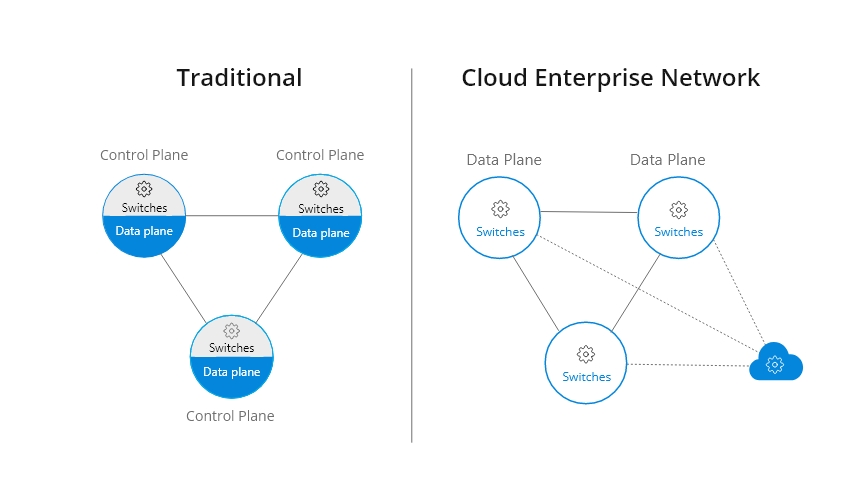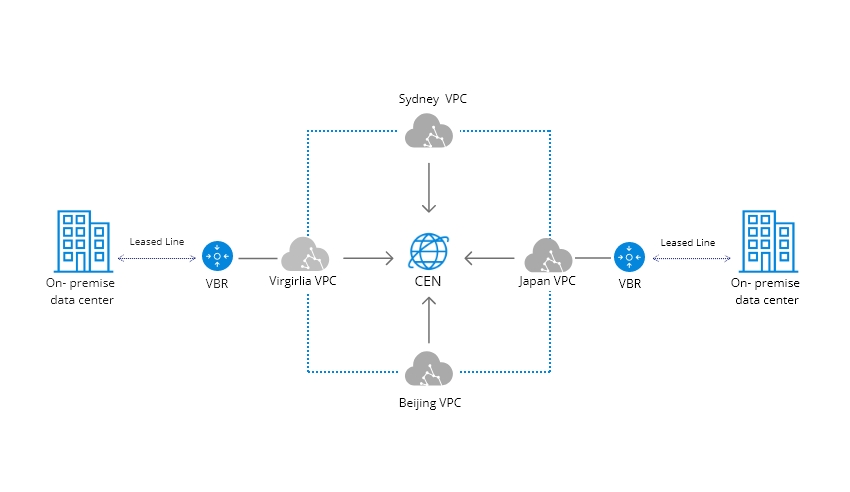By Rupal Shirpurkar, Business Head (Cloud BU - APAC) of Click2Cloud Inc. and Alibaba Cloud MVP
Control systems used in traditional networks are extremely difficult to manage because of their old, rigid commands and consoles. As a result, cloud networking solves the problem of speed and automation.
Cloud networking is a method of network management that emphasizes speed and automation to improve network performance. Cloud networking makes it easier to automate and is less time-consuming to manage. Tasks are easier to complete and less tedious to perform with CEN.
Alibaba Cloud Cloud Enterprise Network (CEN) is open-source and more programmable, whereas old networking systems are not. CEN facilitates multitenant network management and Alibaba Cloud computing, which is changing industries. Applications run faster on Alibaba networks, enhancing the user's experience worldwide.
Cloud Enterprise Network (CEN) differs from traditional networking primarily because its network is software-based. On the one hand, traditional networks use switches and routers, while the cloud is built using a control plane at the virtual level.

Fig: Traditional Network and Cloud Network
In general, traditional networks cannot meet networking requirements, such as dynamic scaling, handling network traffic, handling virtualization traffic, and providing centralized control and management.
Alibaba Network Service defines various networking methods to address these issues, including VPN Gateways, Service Level Agreements, Elastic IP, and Cloud Enterprise Networks. Cloud-based networks are implemented through CEN, where networks are controlled by cloud applications and CEN controllers.
CEN operates on a cloud network layer to eliminate manual labor, provide dynamic scalability, and centrally manage network devices.
Alibaba Cloud Enterprise Network is a globally integrated, highly-performance, and low-latency network built on Alibaba Cloud technology.
The components of CEN include:

Fig: Architecture Diagram of CEN
Cloud networking architecture is an amazing invention. It benefits small and large organizations by providing their network's requirements and allows them to have a better overview of the issues in their network. When using a cloud application, you get the benefits of high-performance, increased efficiency, data storage, and time management, which will reduce the amount of work you need to do and will increase your productivity. Alibaba Cloud Enterprise Network can establish geographically distributed and hybrid networks worldwide.

107 posts | 10 followers
FollowPM - C2C_Yuan - June 1, 2020
Alibaba Clouder - June 18, 2020
Alibaba Cloud_Academy - June 29, 2020
Alibaba Clouder - March 9, 2021
Sabith - October 25, 2018
blog.acpn - November 17, 2023

107 posts | 10 followers
Follow Networking Overview
Networking Overview
Connect your business globally with our stable network anytime anywhere.
Learn More CEN
CEN
A global network for rapidly building a distributed business system and hybrid cloud to help users create a network with enterprise level-scalability and the communication capabilities of a cloud network
Learn More Edge Network Acceleration
Edge Network Acceleration
Establish high-speed dedicated networks for enterprises quickly
Learn More Alibaba Mail
Alibaba Mail
Alibaba Mail is one of the only email service providers in the industry that supports public cloud services and provides fast, secure, and stable services.
Learn MoreMore Posts by Rupal_Click2Cloud